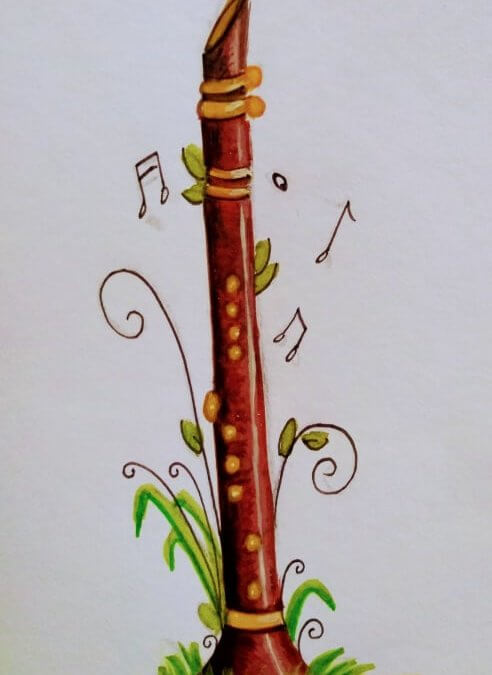This Monday, Altrincham Market welcomes The Stamford Orchestra to perform a special concert at Market House. The event will offer a relaxed way to enjoy classical music for all the family… and apparently there’ll be hotpot! Reading about the event got us thinking, firstly about hotpot (mmm) but more importantly about why we, as music students, should take an interest in classical music. Turns out that, whether you’re playing it or just listening to it, it’s a bit beneficial…
1) Sleeping tight!
Studies have shown that listening to classical music for 45 minutes before bed improves sleep patterns and leads to a better quality of night’s sleep. One study demonstrated that students enjoyed a better quality of sleep when they listened to music before bed as opposed to an audio book, the other stimulus to which they were exposed.
2) Don’t sweat it, you won’t forget it.
Listening to classical music improves our memory! It boosts the activity of the genes controlling our levels of dopamine and our memory, as well as inhibiting those causing neuro-degeneration. In addition to this, music in general resides in parts of the brain not affected by diseases such as Dementia and Alzheimer’s, and so sufferers often find that music reawakens certain memories. Neurologist, Oliver Sacks, wrote in his book ‘Musicophilia: Tales of Music and the Brain’ that
“people with Alzheimer’s disease and other dementias can respond to music when nothing else reaches them. Alzheimer’s can totally destroy the ability to remember family members or events from one’s own life- but musical memory somehow survives the ravages of disease, and even in people with advances dementia, music can often reawaken personal memories and associations that are otherwise lost.”
3) Smarts
Many of you will have heard of the famous ‘Mozart Effect’. For many years it has been hypothesized that listening to classical music (specifically Mozart) boosts the brain’s capabilities; babies develop quicker, students perform better in tests and general IQ improves over time. It is now more widely accepted that music, in general, has this effect on cognitive abilities. However, when studying, classical music is undeniably less distracting due to the lack of lyrics (or lyrics in English at least.)
4) “Dance along to the beat of your heart”
Some scientists have found an interesting connection between blood pressure levels and certain classical pieces whose musical pulses are in sync with our own. Bernadi, Porta and Sleight discovered that an individual’s heart beat will tend to adjust to the tempo of music they are listening to. So listening to music at optimum pulse tempo can keep blood pressure at the right level. Beethoven’s Ninth Symphony is apparently about right!
5) Getting back to school
In order to have a full understanding of anything, it’s important to understand its history, and music has such an exciting and rich one! Classical music represents a huge chunk of the historical tapestry of music so it’s worth giving it a look!
6) The New Wave
Whilst it’s definitely true that classical music forms part of the history, that’s certainly not to say that it’s a lost art! Incredible classical music is still being composed, arranged and performed to this day.
7) “Just a little bit of history repeating”
Whether you’re a classical fan or not, you can’t really deny its influence on modern music. Classical music was majorly (no pun intended) important in shaping the way we create music today. The idea of a chorus, for example, was first introduced during the classical period with short, memorable melodies repeating at intervals throughout the pieces. Many modern rock writers also take the melodic and textural complexity of the baroque period as a leading influence in their writing.
Many songwriters have been so influenced by classical music that they’ve actually lifted classical motifs to use in their own work. The beginning of Barry Manilow’s ‘Could it be Magic’, for example, is Chopin’s Prelude in C Minor, the opening line of Queen’s ‘It’s a Hard Life’ is based on the line “Ridi, Pagliaccio, sul tuo amore infranto!” from “Vesti la giubba”, an aria from Ruggero Leoncavallo’s opera Pagliacci. The guitar riff from Muse’s ‘Plug in Baby’ is also taken from Bach’s ‘Toccata and Fugue in D Minor.’ For a bigger list, check out this article from Classic FM!
https://www.classicfm.com/discover-music/periods-genres/modern/classical-music-pop-songs/
As Music Place guitar teacher, Kirk, says, “Classical music is very important to any music writer. You can hear its influence on most tracks you play that have string arrangements on them. It all comes from the classical world. There’s so much to learn from; the well is deep.”
8) Music- it’s valuable, give it some time!
With the introduction of downloads and streaming services, the way that music is consumed has been altered exponentially; music is available instantaneously and cheaply, and is often shortened to aid sales and radio play. In turn, music has become somewhat devalued and transient. Whereas listening to music used to be an activity in its own right and an investment of time, it’s now something we do whilst doing something else. Listening to classical music invites people to really invest in longer pieces and appreciate their intricacies.
9) Getting Techy
There’s no denying that classical pieces can be technique-heavy. So although they might be a bit tricky to master, you’re playing will improve no end by learning to play an instrument classically.
10) We made you a Lizst…
If you’re still not convinced, have a listen to these bad boys and get back to us:-
– Chopin- Reverie
– Edvard Grieg- Wedding at Troldhaugen
– Karl Jenkins- Paladio
– Camille Saint-Seans- Danse Macabre
– Ennio Morricone- Chi Mai
– Joaquin Rodrigo – Concerto De Aranjuez Adagio
– Leo Delibes- The Flower Duet (Lakme)
– Prokofiev- Montagues and Capulets
Have a lovely week everyone!


